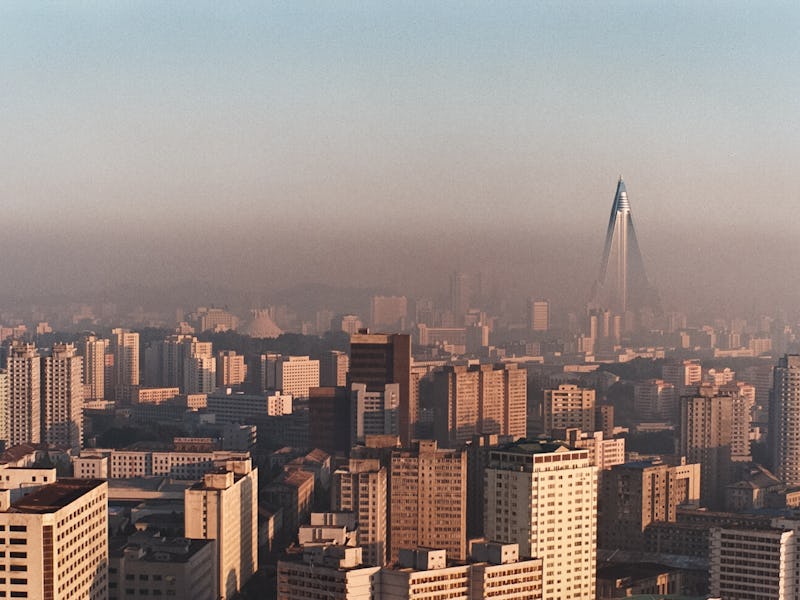North Korea's Secret Productivity Trick? Meth
"Ice" is somewhere between MDMA and meth, and apparently great for "completing projects."

In North Korea, where pressure to complete ambitious construction projects is high, there’s reportedly an unsettling logic to productivity. First, set expectations so high that they’re impossible to meet. Then, allow workers to exhaust themselves in their attempts to meet said impossible expectations. Finally, give workers methamphetamines or other shady stimulants to make them ignore said exhaustion.
In Pyongyang, North Korea’s capital, there are over 60 buildings and high-rises under construction, and “hundreds of thousands” of workers toiling to complete them before winter. Failure, it seems, is not an option, so project managers are apparently supplying their workers with stimulants. These rumors gained credence with the discovery of graffiti in an unfinished building: One such scrawl read “Pyongyang speed is drug speed.” Fast is not fast enough.
Amphetamines and other stimulants are known to be good for productivity, but consumption is, of course, dangerous. Tired workers are not attentive workers, and bone-weary workers in incomplete, exposed high rises on stimulants is not exactly par for the worker safety course. According to reports, construction officials reported the graffiti themselves, which, given the predictable backlash, seems audacious. North Korea, though, with its regime, seems more worried about graffiti than it does about crank-fueled workers. “Investigators are warning construction workers that they will be severely punished for further incidents of this kind,” an undisclosed source told Radio Free Asia.
In Pyongyang, there are evidently not enough hideous tall things.
The drug in question is reportedly “ice,” which any Breaking Bad aficionado might think means crystal meth. It’s probably not that, though: “Ice” is an epithet for 4-methylaminorex, a stimulant with similar but not identical effects to that of methamphetamine. Crystal meth is normally called “glass” due to the crystals’ clarity. “Ice” is likewise crystalline, but its crystals are translucent, not transparent. Ice — also known as “Euphoria” and “Intellex” — never gained much traction in the United States, and so it’s not common. It’s considered a Schedule I drug like marijuana, meaning it is unsafe, has high abuse potential, and has no medical uses. But its appearance in North Korea is not implausible.
The high from 4-methylaminorex lasts around 12 hours; it produces euphoria, increases attention, and boosts cognition. Users have reported that it’s somewhere between MDMA and run-of-the-mill meth. An Erowid entry states that it is “used for completing projects,” which may have been enough justification for these unethical project managers. It’s not a stretch to imagine that any worker who refused to ingest the drug was simply let go, and speaking out in such an oppressive state would not be very prudent. In North Korea, the evident priority is project completion, not human well-being. It’s dystopia or bust.